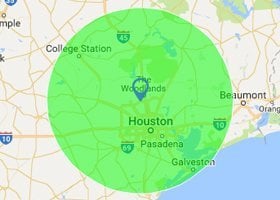Trying To Live Off Grid? You Are Gonna Need Septic
Most homeowners looking to avoid using fossil fuels and desiring to reduce their carbon footprint are beginning to turn to off-grid living, especially wastewater management. Such a move is also becoming popular, as it offers homeowners more independence with their wastewater management and other off-grid responsibilities.
Going off-grid offers you the independence you need from the municipal or central sewage system. That means not only will you be in complete control of your wastewater management issues, but you'll also avoid the monthly fees that come with being connected to the central system. But if you're planning to live off-grid, you're going to  need septic.
need septic.
What does going off-grid mean?
In general terms, " going off-grid" means not relying on one or more public utilities. Homeowners can choose to go off-grid with their energy supply, portable water, food waste management, and wastewater management.
going off-grid" means not relying on one or more public utilities. Homeowners can choose to go off-grid with their energy supply, portable water, food waste management, and wastewater management.
Regarding wastewater management, going off-grid means no longer relying on the central sewage system or disconnecting your wastewater treatment from the city's wastewater treatment and management facility.
In any home, wastewater treatment uses one of two main options - sewer lines or septic systems. The sewer system moves wastewater away from your home to a central treatment plant, while the septic system handles your wastewater treatment on-site.
What is the septic system?
A  septic system usually comprises a tank and a drain field. The tank is designed to allow wastewater to settle in three different levels - the scum (made up of grease and oils), liquid, and sludge. When the wastewater settles, the liquid drains into the drain field through perforated pipes into the ground.
septic system usually comprises a tank and a drain field. The tank is designed to allow wastewater to settle in three different levels - the scum (made up of grease and oils), liquid, and sludge. When the wastewater settles, the liquid drains into the drain field through perforated pipes into the ground.
Regular 'pumping' removes the sludge and scum from the septic tank and keeps the system in top working shape. Living off-grid with a septic tank system is a long-lasting alternative to the sewer system. In addition, maintaining a septic tank isn't too expensive.
Going off-grid with a septic tank
You can disconnect from a sewer system and go completely off-grid, but you're going to need a septic system to treat your wastewater.
As mentioned earlier, the septic system comprises a tank and a drain field. The tank will collect the waste that should've gone into the sewer line. Since it already contains bacteria that break down waste, the treatment process will happen right beneath your property, where the septic system will be installed.
Before you switch to a septic system or go off-grid, there are a few things you need to do.
These include:
Conducting a survey of your site, testing your soil, and deciding how best to structure your system.
Submit a request or application to your local authorities to construct a septic system and wait for approval before you start anything.
Dig the hole your tank needs, and create a route for your pipes linking your home.
Excavate the leach field.
Connect the pipe to the leach field
Allow for inspection, and cover your tank and pipes.
To make things easier, you can seek help from professional septic installation services to avoid costly mistakes.




